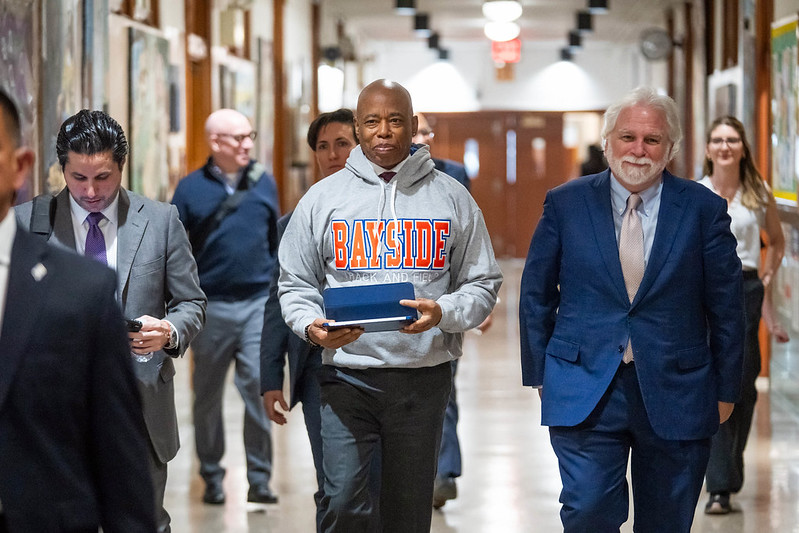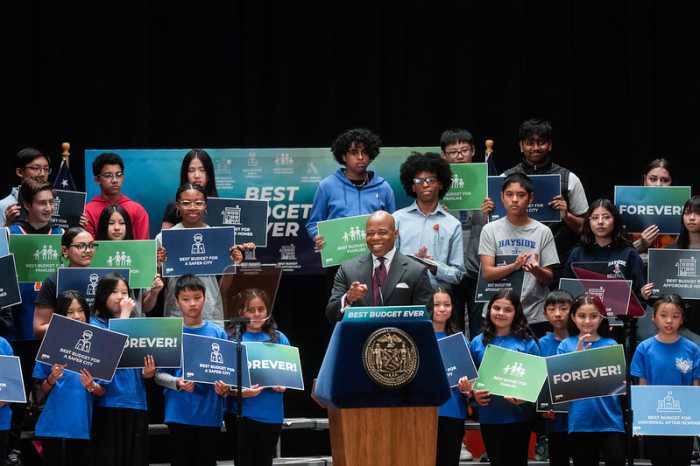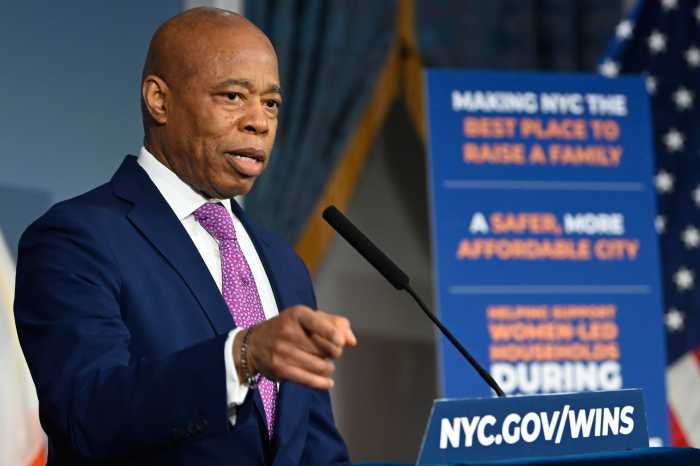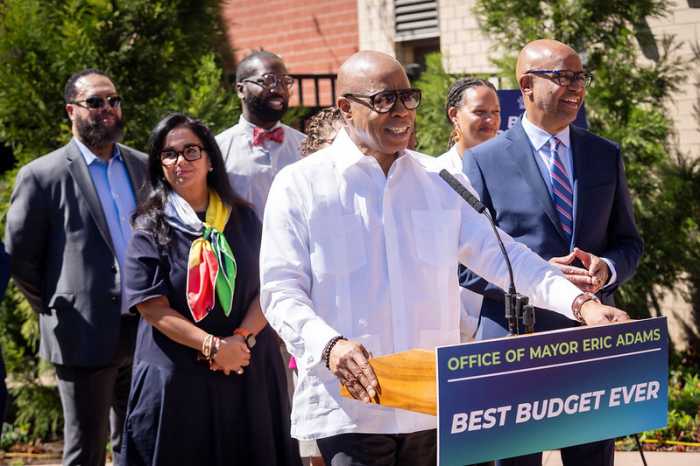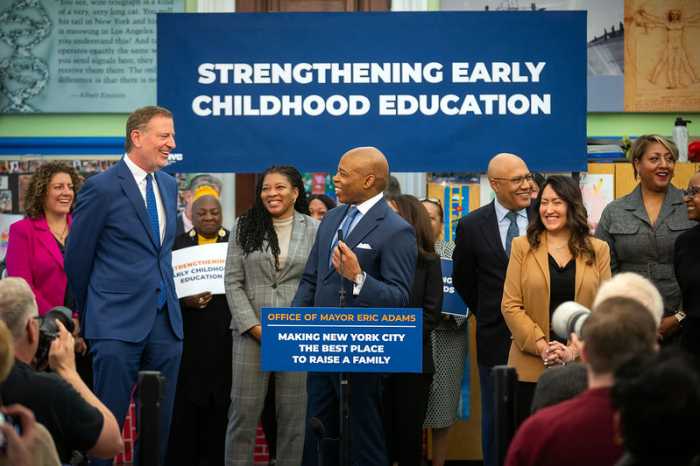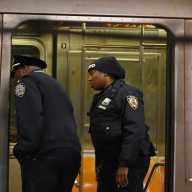Two top City Hall officials said on Thursday that Mayor Eric Adams’ newly released executive budget does not put additional funds into reserves ahead of President Trump’s tariffs and broad funding cuts because they do not anticipate that it would spark a “doomsday scenario” for the city’s economy.
First Deputy Mayor Randy Mastro and Budget Director Jacques Jiha insisted their forecasts show an economic slowdown rather than a full-blown recession, despite rising fears that Trump’s moves could cause the latter. The city has already experienced Trump’s administration cutting $100 million of US Centers for Disease Control and Prevention funding for its Health Department and moving to claw back all of the federal migrant crisis aid it recieved under former President Joe Biden.
The mayor’s $115 billion Fiscal Year 2026 executive budget, while flush with recurring spending on popular city programs, does not add any new funds to the city’s $8.5 billion in reserves — money it sets aside and can tap during an economic crisis. The move prompted immediate backlash from city officials and budget watchdogs concerned that Adams’ administration is completely ignoring an imminent threat.
Nevertheless, Jiha insisted the city’s current level of reserves is “adequate” and puts the city in a “very good position” to deal with any economic uncertainty from Washington. He did indicate that a doomsday scenario could entail the city losing $8 to $10 billion over the next two years.
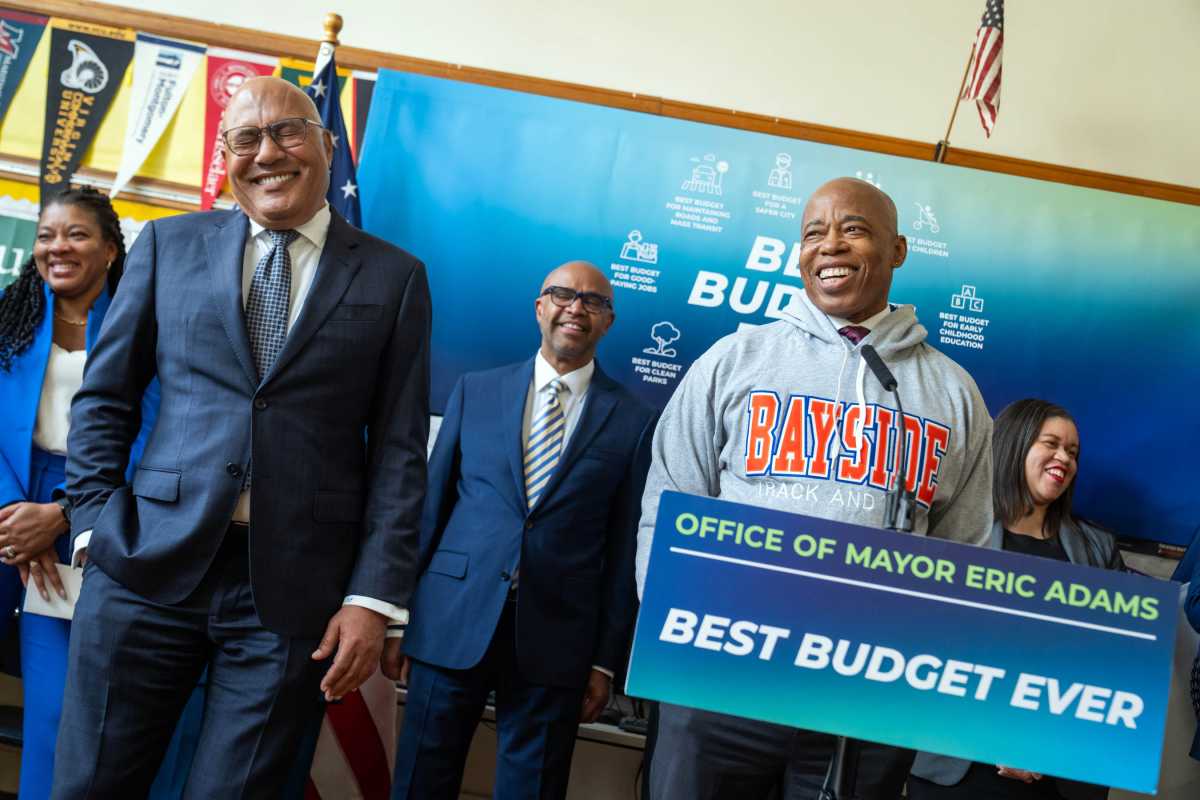
Mastro even suggested that anyone pushing the administration to prepare for a major economic downturn is a “pessimist.”
“Some people, the pessimists, political opportunists, they see the glass as half-empty, they’re predicting the worst for New York City,” Mastro said. “We see the glass as half-full, coming off of a record revenue year where hundreds of millions were able to be rolled over into this year.”
In his defense, Mayor Adams said that while he sees the prudence of the city squirreling away money to soften the blow of an economic downturn, it should not stop the city from investing more money into vital programs.
“That recession cannot take away from investing in our children’s future, cannot take away in housing, cannot take away in public safety,” Adams said. “If we sit back and just have a doomsday scenario, recession is coming, recession is coming, then so we’re not going to deal with these issues that people are facing right now, then it would be irresponsible of us.”
‘A fantasyland’ budget from Adams?
However, city officials, including comptroller Brad Lander, who is running against Adams in the Democratic mayoral primary, contended that the mayor’s budget ignores the reality of the situation.
“Eric Adams’ Executive Budget is from a fantasyland where Trump’s tariffs aren’t increasing the likelihood of an economic downturn and federal budget cuts aren’t looming,” Lander said in a statement. “By refusing to put more money into reserves and prepare for the reality we are facing, Adams is once again failing to protect New Yorkers.”
Manhattan Borough President Mark Levine, in a social media post, described the move as “delusional” and said it left the city “more vulnerable.”
Andrew Rein, president of the Citizens Budget Commission watchdog group, chided the mayor for not taking the opportunity to add a combined $3 billion to the city’s reserves in order to prepare for economic headwinds. Instead, Rein said Adams increased spending to an “unaffordable level.”
Yet City Council Speaker Adrienne Adams and Finance Chair Justin Brannan, both frequent critics of the mayor’s fiscal management, said they believe the city’s reserves are in a “good place.” But Brannan indicated that they “remain concerned.”
“I think there needs to be a balance of making sure we have enough money set aside and keeping our powder dry,” Brannan told reporters during a Thursday news conference. “We’ve already seen hundreds of millions of dollars that have been clawed back by Washington that are affecting our most vulnerable New Yorkers, first and foremost. So we have to make sure that that money is being deployed into those communities.”



